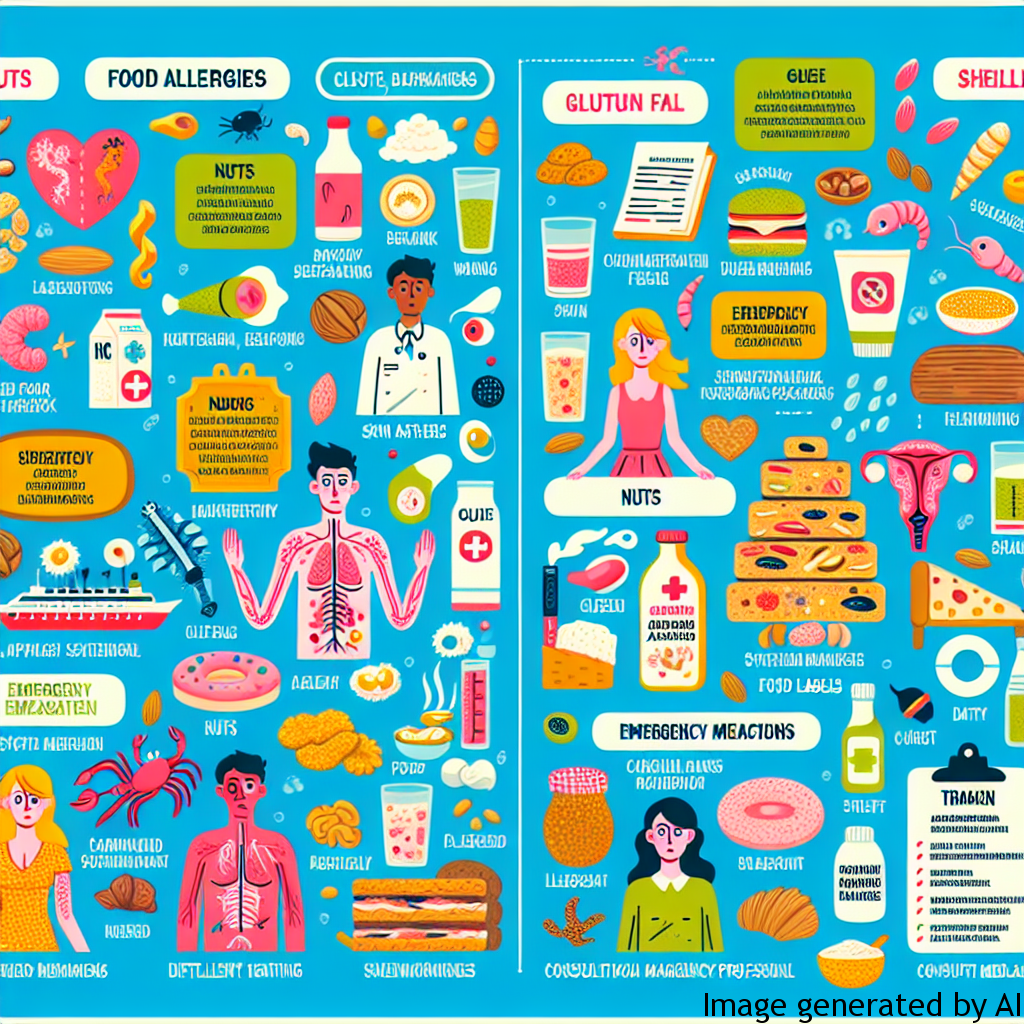Introduction
Food allergies can affect anyone, regardless of age or gender. The sudden or potentially dangerous immune responses they provoke can be a significant source of anxiety for many people. Understanding what food allergies are and how to manage them can significantly reduce this anxiety, improving both physical health and mental wellbeing.
Description of Food Allergies
What are Food Allergies?
A food allergy occurs when the body’s immune system reacts unusually to specific foods. Allergic reactions can be mild, but in some cases, they can be severe and may even be life-threatening. Common foods that cause allergies include nuts, shellfish, eggs, and milk.
Impact on Mental Health
The unpredictable nature of food allergies can induce anxiety and fear, particularly in severe cases where a potential allergy-triggering meal can pose a life-threatening situation. These conditions can lead to stress, anxiety disorders, and even depression. This stress is often exacerbated by the social limitations food allergies can impose, such as difficulty finding suitable meals in restaurants or having to refuse certain foods at social events.
Examples of How Food Allergies Can Affect Lives
Food allergies can vary widely from person to person, but for severe cases, they can dictate much of a person’s life. They may have to carefully prepare meals, avoid certain social situations where food is involved, or carry an Epipen at all times. The continuous vigilance can take a toll on a person’s mental health and overall quality of life.
Tips for Improving Mental Health Considering Food Allergies
One of the first steps in managing food allergies and their impact on mental health is educating oneself about the allergy. Knowing what foods to avoid and how to respond in case of an allergic reaction can provide a sense of control over the problem. It could also be beneficial to seek counseling or join a support group to discuss experiences with others who face the same issues. Standard mental health practices like mindfulness exercises, regular physical activity, and maintaining a balanced diet can also help alleviate anxiety and stress related to food allergies.
Conclusion
Food allergies can pose significant challenges to physical health and mental wellbeing. However, by gaining education about one’s specific allergies, developing a solid management plan, and maintaining good overall mental and physical health practices, it is possible to live a full and healthy life despite these allergies.

